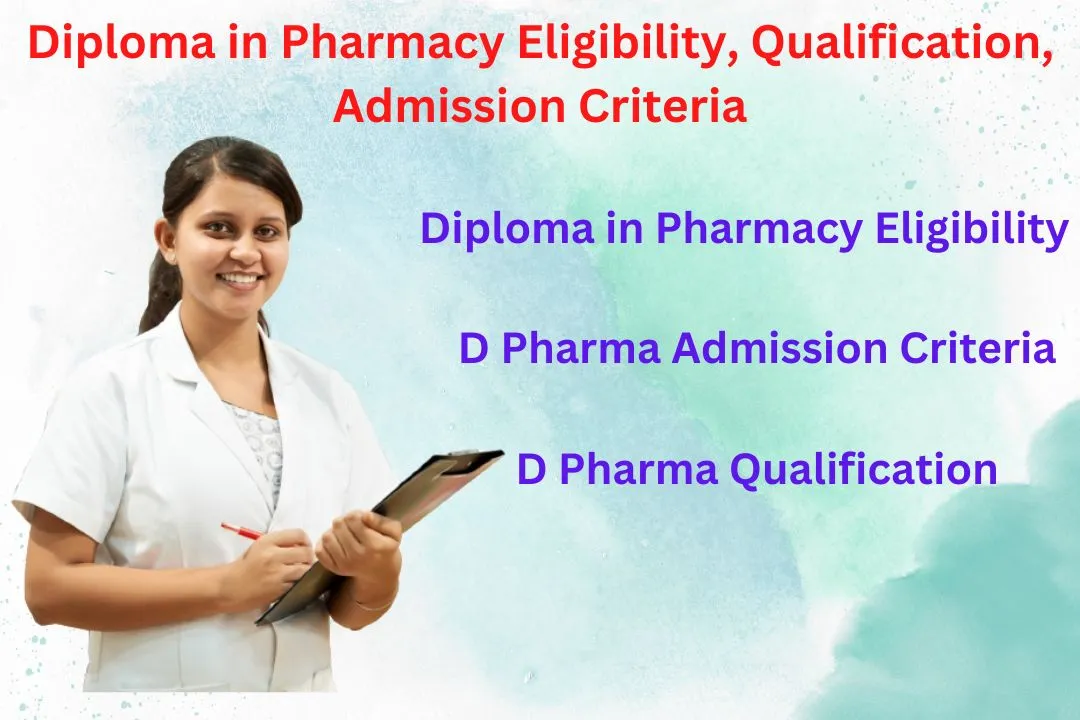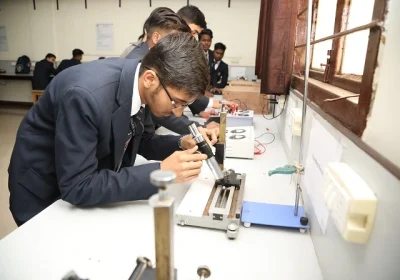
Diploma in Pharmacy Eligibility, Qualification and Admission Criteria
D Pharma Qualification:
D.Pharma (Diploma in Pharmacy) is a two-year diploma program that prepares students for a career in the pharmaceutical industry. It is a popular choice for students who want to start working in the pharmaceutical field as soon as possible. D.Pharma programs are typically offered by government-approved colleges and institutions, and the curriculum includes both theoretical and practical components.
To be eligible for a D.Pharma program, students must have completed their 10+2 or equivalent education with physics, chemistry, and biology as their main subjects. In some cases, mathematics may also be required. Students who have completed their D.Pharma program may work as pharmacists in hospitals, pharmacies, and other healthcare settings. They may also be eligible to pursue further studies in pharmacy, such as a B.Pharma (Bachelor of Pharmacy) or an M.Pharma (Master of Pharmacy) degree.
Diploma in Pharmacy Eligibility:
To be eligible for a Diploma in Pharmacy (DPharm) program, you typically need to have completed your high school education and have obtained good grades in subjects such as chemistry, biology, and physics. Some programs may also require you to pass an entrance exam or have relevant work experience.
It is important to check the specific eligibility requirements for the DPharm program you are interested in, as they may vary between institutions. For example, some programs may have specific grade requirements or may prefer applicants who have completed certain prerequisites, such as chemistry or biology courses.
In addition to the academic requirements, you may also need to meet certain non-academic requirements, such as undergoing a criminal background check and obtaining a valid license to practice pharmacy in your state or country.
Overall, a DPharm program is a demanding course of study that requires strong motivation, dedication, and a commitment to learning. It is important to carefully consider whether this type of program is right for you before applying.
Sure, here is some additional information about the Diploma in Pharmacy (DPharm) program:
1. Duration: A DPharm program typically takes two to three years to complete, depending on the institution and the specific program requirements.
2. Coursework: The curriculum for a DPharm program typically includes a combination of classroom instruction and clinical training. Classroom instruction may cover topics such as pharmacology, medicinal chemistry, pharmacotherapeutics, and pharmacognosy (the study of natural products used in the practice of pharmacy). Clinical training typically involves hands-on experience in a pharmacy setting, where students can apply the knowledge and skills they have learned in a real-world setting.
3. Career prospects: Upon completion of a DPharm program, graduates are typically qualified to work as pharmacy technicians or assistants, or to pursue further education in order to become licensed pharmacists. Pharmacy technicians and assistants typically work under the supervision of a pharmacist, helping to dispense medications and provide other support to customers and patients. Licensed pharmacists are responsible for reviewing and approving prescriptions, providing medication information to patients, and managing a pharmacy’s inventory and other operations.
D Pharma Admission Criteria:
The criteria for admission to a D.Pharma program may vary from one institution to another. However, there are some general requirements that are commonly followed by most institutions. These may include:
1. Educational qualification: Students must have completed their 10+2 or equivalent education with physics, chemistry, and biology as their main subjects. In some cases, mathematics may also be required.
2. Age limit: Most institutions have an age limit for admission to a D.Pharma program. For example, the age limit may be 17-25 years.
3. Minimum marks: Students must have obtained a certain minimum percentage of marks in their 10+2 exams. The minimum percentage may vary depending on the institution.
4. Entrance exam: Some institutions may require students to appear for an entrance exam as part of the admission process. The exam may test the student’s knowledge of subjects such as physics, chemistry, and biology.
5. Interview: Some institutions may also conduct an interview as part of the admission process. The interview may be used to assess the student’s communication skills and motivation to pursue a career in pharmacy.
It is important for students to check the specific admission criteria for the D.Pharma program they are interested in, as the requirements may vary from one institution to another.
I hope Diploma in Pharmacy Eligibility, Qualification and Admission Criteria post information is helpful for you. If you have any other questions do comment, don’t hesitate to ask.






